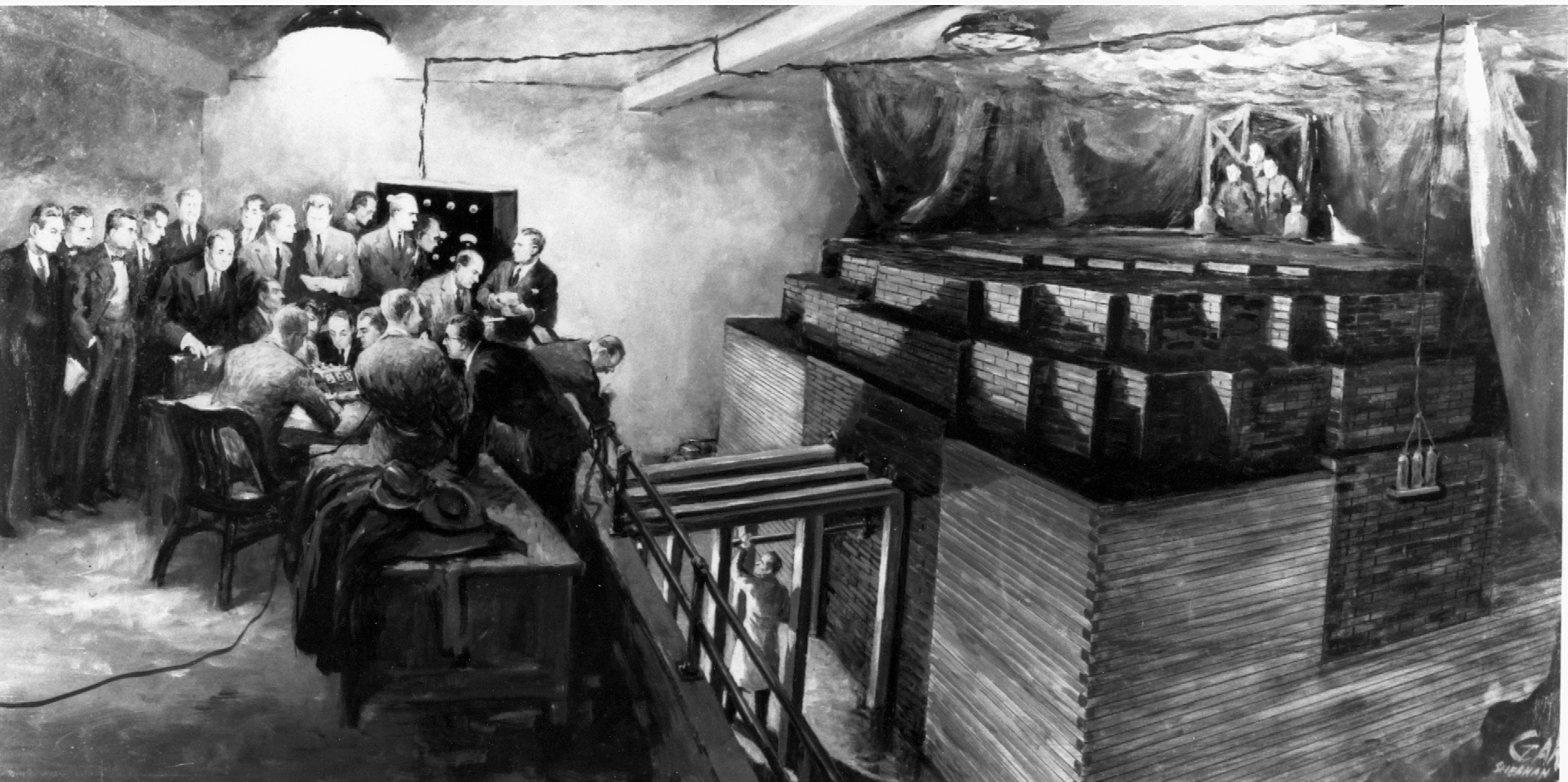UChicago News
In the midst of World War II, 75 years ago, the Italian émigré Enrico Fermi and a coterie of world-class physicists converged at the University of Chicago to prepare for a top-secret experiment as part of the Manhattan Project. Their goal was to initiate the first controlled, self-sustaining nuclear chain reaction—a scientific leap that would have immense implications for the war and the world’s future.This fall, the University of Chicago will kick off a series of public events to mark the 75th anniversary of the chain reaction experiment, which took place on Dec. 2, 1942. The series of events, titled “Nuclear Reactions, 1942: A Historic Breakthrough, an Uncertain Future,” will begin in September and will culminate in a two-day program on Dec. 1-2.
The events will address the complex legacy of the experiment, which has had a far-reaching impact on nuclear physics, engineering, medicine and energy, in addition to its role in the development of nuclear weapons and the potential for destruction on a massive scale. Discussions will consider how the breakthrough led to the establishment of new, enormous power, which like all great power can be used for good or ill.
The series will include lectures, seminars, workshops, multimedia presentations, music and dance performances, an exhibition at the Museum of Science and Industry, and events involving Argonne National Laboratory, which was created in the post-war period to help pursue energy research for peaceful purposes. Expert speakers will explore the past and future of nuclear energy, as well as issues of history, nuclear weapons policy, nuclear medicine and the pursuit of peace.
Participants will include UChicago faculty, postdoctoral fellows, graduate students and undergraduates, as well as scholars and visitors from around the world. The University will send more detailed information about the events as the fall quarter approaches.
One topic of the commemoration will be to consider the perspectives and motivations ...
Read More
Saturday, July 15, 2017
UChicago to commemorate 75th anniversary of first chain reaction
Subscribe to:
Post Comments (Atom)
No comments:
Post a Comment
Note: Only a member of this blog may post a comment.